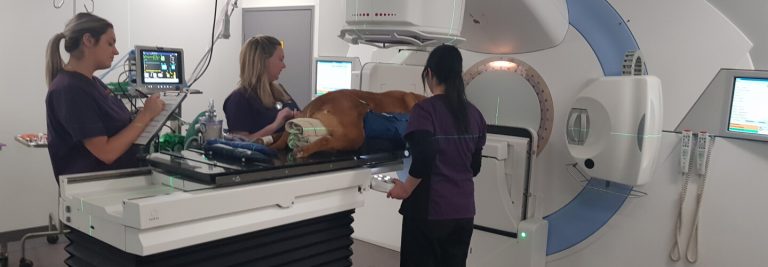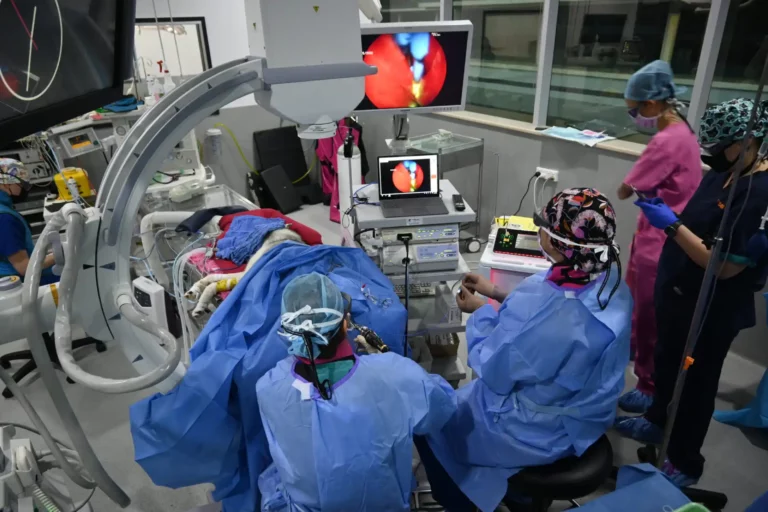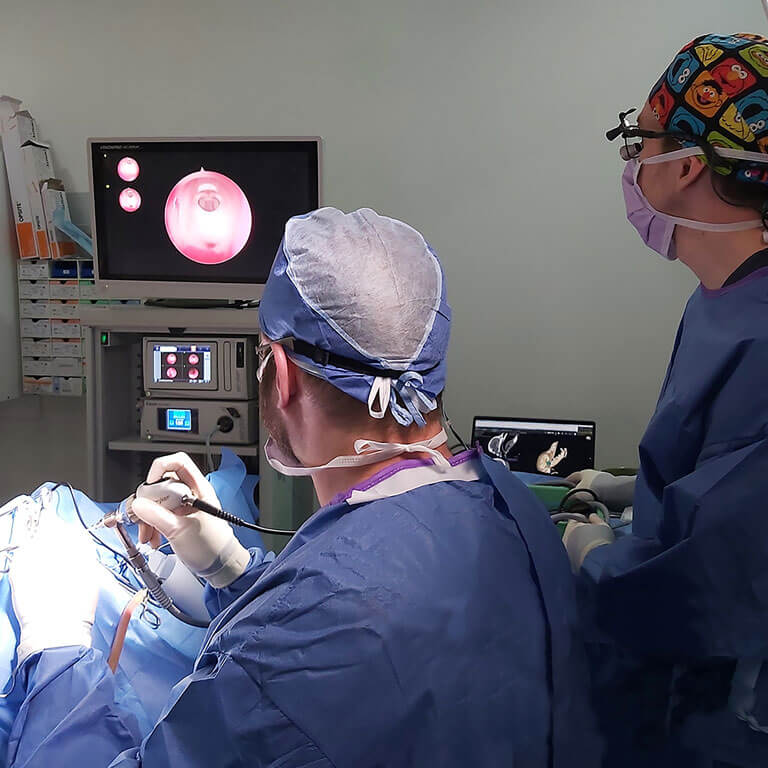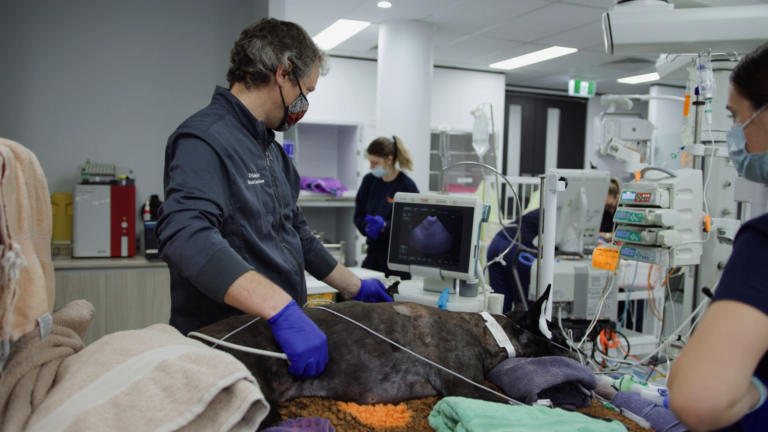Reviewed by Dr Negar Hamzianpour, Specialist in Ophthalmology
Glaucoma in dogs can be a serious eye condition, which will requires specialist care from a veterinary ophthalmologist. In this article, we will explore what glaucoma is, its causes, symptoms, and the treatment options available, offering a beacon of hope for pet owners navigating this challenging diagnosis.
What is glaucoma in dogs?
Glaucoma in dogs is a condition characterised by increased pressure within the eye (intraocular pressure, IOP). This pressure arises from a buildup of fluid in the eye, known as aqueous humour, which, when not drained properly, causes damage to the optic nerve and retinal cells. Left untreated, glaucoma can lead to permanent blindness and severe pain for the affected dog.
What causes glaucoma in dogs?
Glaucoma in pets can be classified into two main types: primary and secondary.
Primary Glaucoma is largely hereditary, occurring due to the pet’s genetic predisposition. Certain breeds, including Cocker Spaniels, Basset Hounds, and Jack Russell Terriers, are more susceptible to this type, where the eye’s drainage system is improperly developed. This condition will usually affect both eyes, in the dog’s lifetime.
Secondary Glaucoma is a consequence of other eye conditions or injuries, such as uveitis (inflammation inside the eye), lens dislocation, or tumours. This type can affect any dog, regardless of breed. Depending on the underlying cause this can affect one or both eyes.
Symptoms of glaucoma in dogs
The symptoms of glaucoma in dogs can vary but typically include:
- An increase in the size of the eyeball
- Cloudiness within the cornea – a ‘blue haze’ on the surface of the eye
- Redness of the blood vessels in the whites of eyes
- Vision loss, as evidenced by bumping into objects or reluctance to move in familiar environments
- Lethargy, depression or reduced as a result of chronic pain, which sometimes may be difficult to detect in dogs
Early detection and intervention are crucial. If your pet exhibits any of these symptoms, it is imperative to seek veterinary attention immediately.
Treatment for glaucoma in dogs
At SASH, our Ophthalmologists generally have a multifaceted approach to treating glaucoma, tailored to each individual pet’s condition and needs. Treatment may involve medication, surgery, or a combination of both, aiming not only to alleviate pain but also to preserve vision when possible.
Medication for glaucoma in dogs
The initial treatment for glaucoma typically involves medications to reduce intraocular pressure, either by decreasing fluid production within the eye or by improving fluid drainage. These medications can come in the form of eye drops or systemic medications.
Surgical treatments for glaucoma in dogs
For cases where medication is insufficient or as a long-term solution, surgery may be recommended. Options include laser therapy to reduce fluid production within the eye or shunt procedures to improve fluid drainage from the eye. In severe cases, where vision cannot be saved, surgery may focus on pain relief measures, such as eye removal (enucleation) or implant placement.
Why choose SASH for treating glaucoma in dogs?
SASH offers specialist ophthalmology at a number of hospitals in its network including North Ryde, Western Sydney, and Central Coast. For an up-to-date list, please contact our friendly client services team.
SASH understands that in some cases, glaucoma may require urgent care. This is why SASH North Ryde is proud to be the only hospital in NSW to offer 24/7, 365 day ophthalmology support. As the only hospital in NSW to offer this round-the-clock eye care, you can have peace of mind that your dog will always have access to appropriate care. If your dog requires urgent ophthalmic attention, whether it be for glaucoma or any other eye condition, do not hesitate to bring them straight to SASH North Ryde 24/7 Emergency. No appointment is necessary. The team of experienced emergency vets will be able to assess and treat your pet, and if required, will call on the assistance of the SASH specialist Ophthalmology team.
If you suspect your pet may be showing signs of glaucoma or if you have any concerns about their eye health, do not hesitate to consult with your local veterinarian or contact the SASH. Our dedicated team of veterinary specialists is here to provide the care and support your pet needs.




